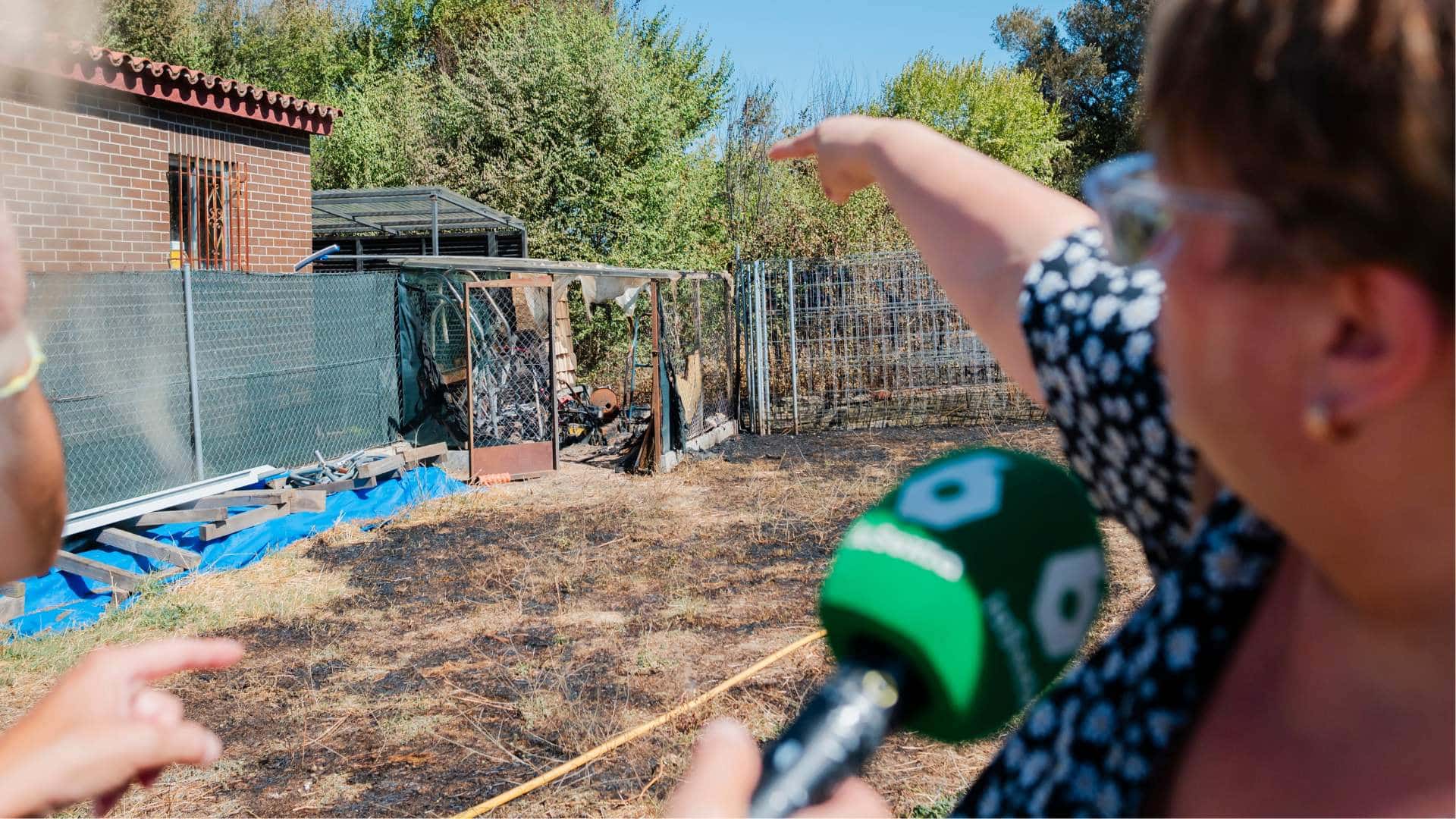Sure, you can Zoom someone in on your laptop or chat over WhatsApp. But when you go out to an event or interview you come back with so much more.

A woman tells a journalist about her experience after a fire broke out in the Calypo housing development in Toledo, Spain, 18 July 2025. (Mateo Lanzuela / Europa Press via AP)
In News Decoder’s Top Tips, we share advice for young people from experts in journalism, media literacy and education. In this week’s Top Tip, investigative reporter Matt Drange tells us why we can’t interview just anyone for a story if we want good information.
You can find more of our learning resources here. And learn how you can incorporate our resources and services into your classroom or educational program or by forming a News Decoder Club in your school.
If you don’t leave your home to witness important events for yourself, you lose out on important color and interesting details for your story. You also become less credible in the eyes of your audience.
That’s advice from Norma Hilton, an independent investigative journalist whose work has been published in Canada, the United States and Australia.
Hilton said she once went to a rally in Toronto and discovered that more than 250 organizations had banded together to demand the immediate ceasefire of Israel’s war against Hamas in Gaza.
“I would have never found that out if I had not gone there in person,” she said. “I also would have missed out on the incredible details of the cars honking and the people cheering and seeing that there were kids there with their parents and everyone was protesting peacefully.”
By going to an event instead of merely getting reports from other people, you might find out that someone you talked to about it lied, and you can meet valuable new sources, Hilton said.
And by giving your readers or listeners information you got yourself, you build your credibility, she said.
What to know about on-the-ground reporting
Here’s Norma Hilton’s tips for reporting an event firsthand.
1. Do some research. Before you go out, find out who is involved, what is happening and why people are there or will be there. Take the time to find the best way to get there — and the best way to leave. Sometimes events may turn violent very suddenly, and it’s important to stay safe.
This article was adapted from a video interview with Norma Hilton produced as part of News Decoder’s partner project Mobile Stories. Mobile Stories is a publishing tool for young people. It provides guidance on how to create trustworthy news content while upholding journalist ethics.
Watch Norma Hilton’s full video here:
2. Bring a recording device. This could be anything as simple as your phone or a notepad. But before you start recording in any form, ask the person you are interviewing whether they consent to it.
3. Take pictures and videos. This will be useful for the social media team at your organization. Always remember to shoot in horizontal so they have more leeway with editing.
4. Don’t be shy. Go up to people and introduce yourself and explain your goals. Often people want their stories told, but they won’t come up to you to offer to talk. You have to ask them.
💡 More Tips Like This
This story is part of News Decoder’s open access learning resources.
Whether you’re a secondary student, studying at university or simply interested in learning new things, we can help you build your journalism skills and better understand big global issues.
If you are a student or a member of a News Decoder Club, check out our other learning resources.
If you are a teacher, check out our other classroom resources:
- News in the Classroom
- Educator’s Catalog of classroom exercises
And ask us about joining the News Decoder Club program.
